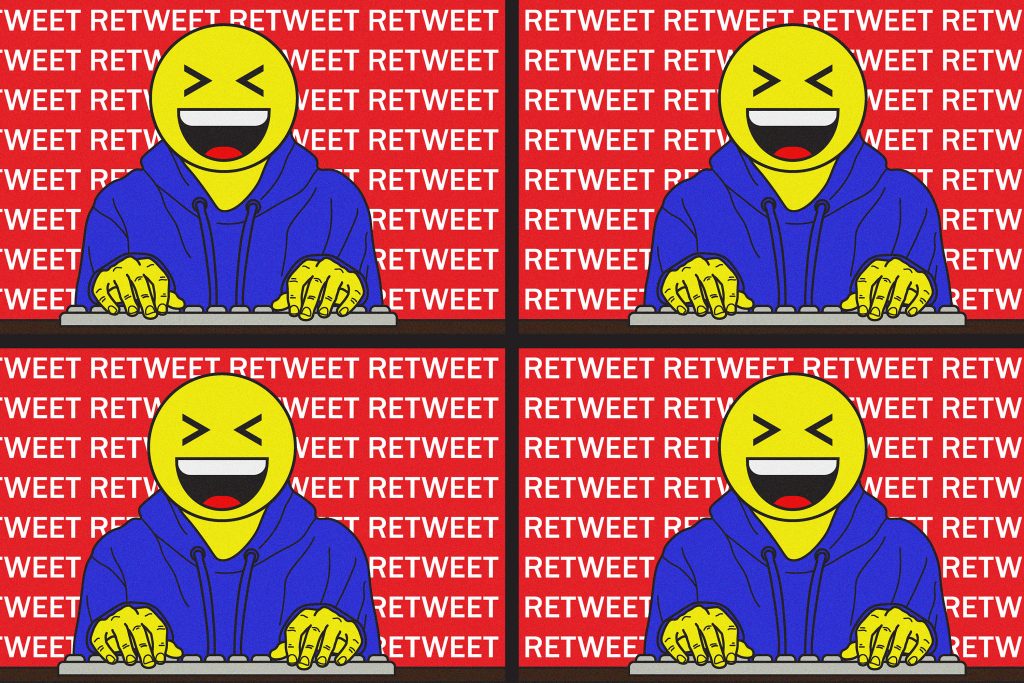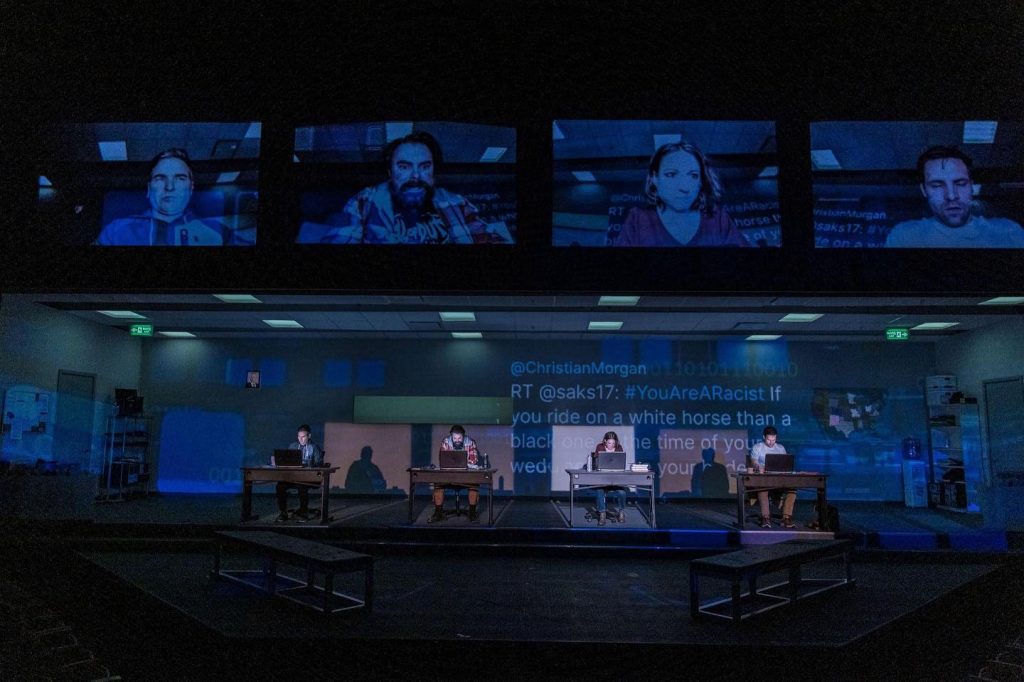
‘Russian Troll Farm’ finally trolls IRL at Rochester’s Geva Theatre
A play originally performed on Zoom depicts Russian Internet Agency workers trying to sway America’s 2016 election.

ussian Troll Farm focuses on using Facebook to sway an American presidential election about as much as The Office probed the nuances of the paper-making business in Scranton, Pennsylvania. On the contrary, both the beloved NBC sitcom and Sarah Gancher’s new play instead use their respective workplaces as a pretext to explore workplace romance, chaotic plotlines and the idea that a person’s career need not reflect their identity.
Originally performed in a real-time Zoom production in 2020, Russian Troll Farm has now been adapted for a live audience, which is how Gancher had originally imagined it. Rochester’s Geva Theatre is currently presenting its onstage world premiere, directed by Tony Award winner Darko Tresnjak, through late March.
The play proposes a narrative of what could have happened at Russia’s Internet Research Agency leading up to the 2016 election. We meet five IRA workers: Masha, a former journalist damaged by a past work affair; Nikolai, a troll who justifies his guilt with the artistry of his job; Egor, a deadpan tech geek who has become attached to his false identity and his connection to the community he trolls; Steve, an aggressive yet charming troll working his ideal career; and Ljuba, their cunning supervisor, who is grappling with the loss of her daughter and other past traumas.
Amid the fake accounts, broken article links and disinformation, all designed to confuse and emotionally manipulate American social media users, Masha and Nikolai initiate a starry-eyed workplace romance that would do Jim and Pam proud. In lieu of playing pranks on nebbishy coworkers, however, the Russian Troll Farm would-be lovers embark on #tunnelkids, an oddly intimate trolling collab about the fake Hillary Clinton child trafficking ring.
The result “gives the audience permission to laugh about something that, in the moment, wasn’t funny for us,” said Geva dramaturg Fiona Kyle. “There’s something really exciting and dynamic about a play that’s willing to take a risk. Because it pays off.”
When Donald Trump is announced (spoiler alert!) the winner of the election, the IRA workers — goofily dressed up for a workplace costume contest — scream in delight, gulp vodka and stuff their mouths with popcorn. “It was wrong, but we did it,” Masha reassures herself as she paces back and forth in a hooded adult onesie.
At the end of the day, Russian trolls are just people. They go to work and perform their best in order to provide for themselves. “They’re just the ones who are cogs in the machine,” Kyle said. “Same as us in whatever industry we work in. We’re just doing what we’re being told.”
Gancher humanizes these characters and nudges us to reconsider the malicious intent that we assume fuels these trolling sprees, while also suggesting that Americans should think about how we engage with online propaganda and make sense of the truth.
“It’s so much easier to accept a version of the world that’s given to us if it fits into how we already see things,” said Haskell King, who played Egor in the Zoom version and revisits the role here. “The Russian trolls, they were really just looking at how we already view the world and interact with each other … and exploiting that.”
Jared Mezzocchi’s multimedia design of the original Zoom play – which received a prestigious Obie Award just days before the premiere of the Geva version – created the impression of observing the IRA workers through their computer cameras as they hurriedly type on their keyboards. At the same time, the drafts of posts that they type and send overlap on the screen with their interactions with outside users, as if you are also viewing their desktops.

The Geva production replicates this digital world by creating an interplay between multimedia and the actors onstage. Four desks surrounded by filing cabinets and trash cans are set across the stage. Katherine Thesing, the production’s stage manager, said custom-designed laptops with built-in cameras project the trolls’ faces onto screens above them, where visuals of their online shenanigans also play an integral role.
“It feels very fresh to me,” Thesing said. “So I hope it will also feel fresh to audiences, too.”
Because the online version was filmed in multiple locations across the East Coast, King said, the actors had to master timing in order to land the laughs while factoring in Zoom delays (and staying seated the whole time). Now that Russian Troll Farm exists onstage, he said, he has a chance to implement physical humor and more directly engage with the audience.
“There’s nothing like being in a theater and getting everybody to laugh together,” King said. “Those laughs are where the comedy is.”
